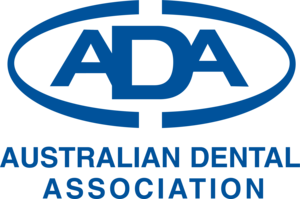Dentures
WHY should i consider dentures?
Life expectancy has increased significantly past the age of retirement. In 1965, average life span was 65 years and in 1990, it was 78 years but now a healthy 65 year old person has a 50% chance of living up to 85 years and 25% chance of living up to 94 years.
According to literature, tooth loss is directly proportional to age and hence millions of people worldwide wear dentures. With modern technology, materials and means of keeping them in place are changing. Hence we will introduce you to some of the different types of dentures.
Types of Dentures
PARTIAL DENTURE
It needs to take support from the nearby natural teeth and gums for it to stay in position. To hold the partial denture in position, clasps are used to secure the denture to nearby natural teeth.
FULL DENTURE
A full denture is made when all the natural teeth are missing. It can be only top or bottom teeth or both. They generally are kept in position by the supporting gums and muscles of the mouth.
IMMEDIATE DENTURE
As the name suggests immediate means it is inserted at the same appointment as the teeth are extracted so that you don’t have any waiting period in between.
OVER-DENTURE
It is usually sitting over and taking support from either healthy roots or dental implants.
MORE FACTS ABOUT immediate dentures
After the teeth have been extracted, the immediate dentures are placed in the mouth while you are still in the dental surgery.
Advantages
No social embarrassment.
Better aesthetics as there are natural teeth present during fabrication.
Disadvantages
Multiple visits for adjustments- you may need to visit the dentist several times for small adjustments. As immediate dentures cannot be tested in the mouth before teeth are removed, the fit and appearance of the dentures may need to be adjusted.
During healing, the gums shrink and the fit of the immediate denture becomes loose. It then needs relining or possibly remaking.
Disadvantages Of Conventional Dentures
Lack of retention or stability- The widespread use of denture adhesives is one indication of inadequate comfort and function
Difficulty in adapting to full lower denture- A mandibular denture may move 10mm during function. Under these conditions, predetermined occlusal contacts and the control of masticatory forces are nearly impossible.
Soft tissue abrasions and bone loss- Lateral forces may cause a horizontal movement of a conventional prosthesis and cause soft tissue abrasions and accelerated bone loss, making it necessary to continually repair and remake
Poor speech- Conventional dentures often move vertically during chewing and other various movements which can cause clicking noises
Poor function- Patients with conventional dentures need 1.5 to 3.6 times the number of chewing strokes as for patients with implant or tooth supported over-dentures
Compromised aesthetics- Presence of large denture extensions result in exaggerated facial contours mainly in patients with recent extractions
Advantages Of Over-Dentures
Better support and stability- Since major support and retention comes from retained tooth roots or implants, it remains in place during all jaw movements
Jaw bone preservation- The retained root or implants help to retain the height of the jaw bone as well
Increased biting force- Patients can enjoy a wider variety of food due to better chewing ability
Easier speech and best for “gaggers”- It reduces the amount of soft tissue coverage and extension of denture plate which in turn allows early speech adaptation and is quite helpful for new denture wearers with low gagging threshold
Psychological advantages and quality of life- Patient has feel of added security of increased retention and fear of denture ”flying out” or “coming down” during social gatherings is overcome
Better aesthetics- Improved support of the lips and cheeks with flanges extended only adequately for this function which also allows teeth to be of the same length as natural teeth in contrast to full fixed restorations
The 2002 McGill Consensus Statement concluded there is overwhelming evidence that restoration of the edentulous mandible with a conventional denture is no longer the most appropriate choice of prosthetic treatment. The implant supported over-denture has become the standard of care.





